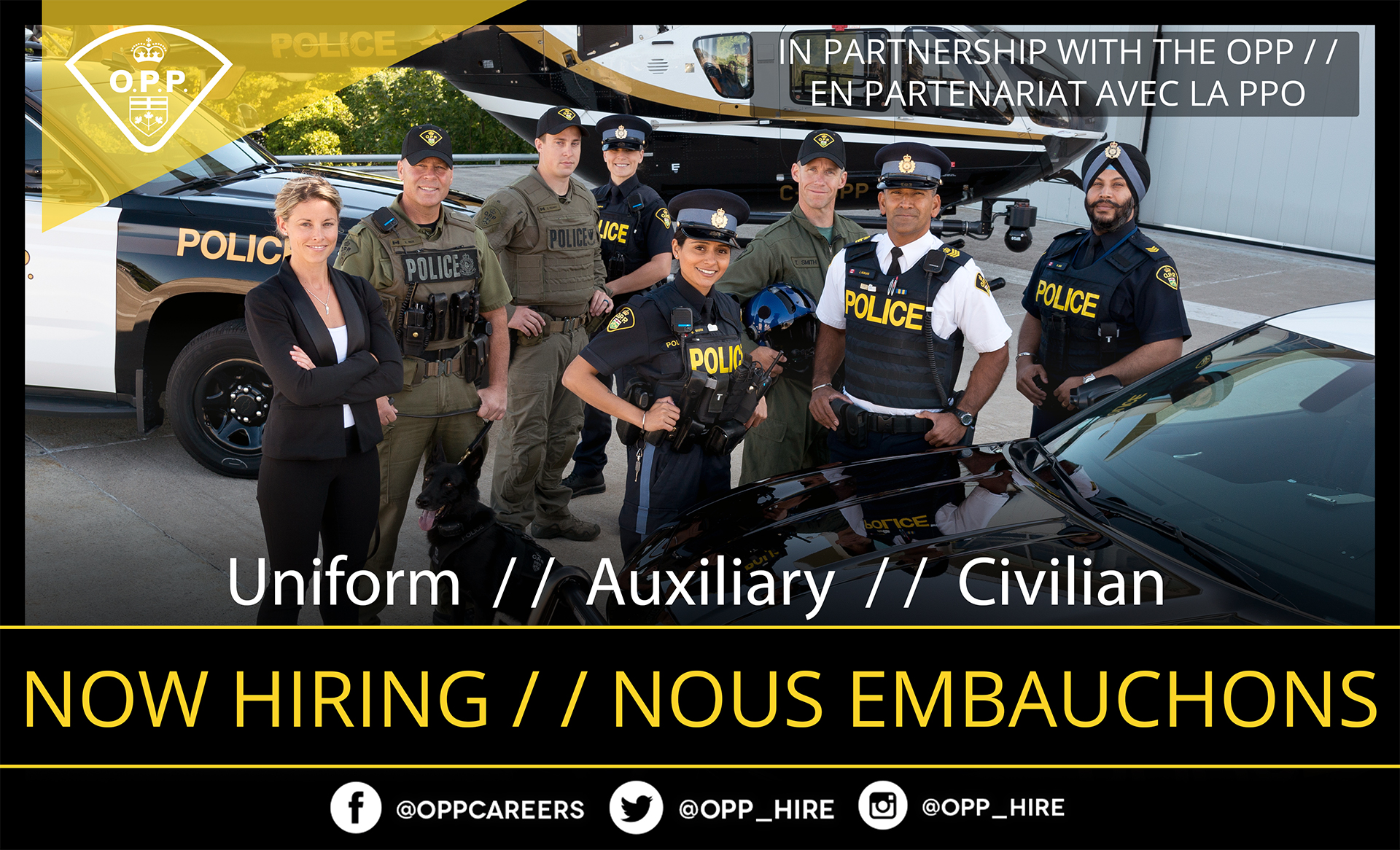Program Overview
This program presents the knowledge, fitness skills and aptitudes to prepare students for a career in law enforcement. The student will have a strong theoretical foundation on which to build communication, ethical and interpersonal skills. Graduates will know the fundamentals of police investigation techniques, police procedures and community policing. This program will appeal to students who are community-minded and are of good moral character. Students must have good written and oral communication skills and be able to deal with stressful situations. Being physically fit is also important.
Program Highlights
- During the year, students will have opportunities to attempt and improve their results in the following law enforcement fitness tests: PREP - Ontario Police Services; Police Fitness Pin - Ontario Police Services; PARE - RCMP & CBSA; and the FITCO - Corrections Ontario.
- Because the program is delivered in 12 straight months, many students return and take a second "fast track" law enforcement program, providing them with two relevant 2-year diplomas in just 2 years. This makes them even better candidates for hire in the field of law enforcement.
- Graduate Testimonials
Career Opportunities
Graduates work in municipal, provincial and federal police services, in private security, and as special constables and campus police.

Admission Requirements
OSSD with the majority of courses at the College (C), University (U), University/College (M) or Open (O) level plus:
- Grade 12 English - ENG4U, ENG4C, EAE4C or EAE4U
Mature students - See Admission Procedures for details.
Health & Fitness Requirements
Any student seeking entry into this program should evaluate their physical readiness in anticipation of a rigorous fitness routine. Suitability for job opportunities with law enforcement agencies is partially assessed through demanding physical fitness tests prior to being hired. During the program, students will be exposed to those tests and will be responsible for building and maintaining their own high level of personal fitness. Students will be required to complete 4 physical fitness courses (JUS 101, JUS 201, PFP 308 and PFP 418)
Courses
Please scroll to the bottom of the list to review the Pre/Co-Requisites.
The curriculum below is for incoming students:
Semester 1
| Code | Title | Credits |
|---|---|---|
|
JUS103
|
Issues In Canadian Criminal Justice |
3
|
|
JUS100
|
Law And Justice Communications I |
3
|
|
JUS101
|
Lifestyle & Fitness Management I |
3
|
|
PFP301
|
Criminal & CIVIL Law |
3
|
|
PFP109
|
Political Science |
2
|
|
JUS102
|
Interpersonal & Group Dynamics |
3
|
|
JUS105
|
Ethics And Professionalism |
3
|
|
ELEC1030
|
Choose 1 Elective Course |
3
|
|
JUS104
|
Psychology For Law And Justice |
3
|
Semester 2
| Code | Title | Credits |
|---|
Semester 3
| Code | Title | Credits |
|---|---|---|
|
PFP310
|
Traffic Management & Provincial Offences |
3
|
|
PFP305
|
Youth In Conflict With The Law |
3
|
|
PFP308
|
Fitness And Lifestyle Management III |
3
|
|
JUS211
|
Mental Health And Addiction Awareness For First Responders |
3
|
|
PFP409
|
Police Powers II |
2
|
|
PFP418
|
Lifestyle & Fitness Mngmnt IV |
2
|
|
PFP311
|
Community Policing & Community Services |
2
|
|
ELEC1030
|
Choose 1 Elective Course |
3
|
|
PFP402
|
Criminal Code And Federal Statutes |
3
|
Program Physical Demands Analysis
Program Vocational Learning Outcomes
Police Foundations (Ontario College Diploma) (MTCU Code 53008)
The graduate has reliably demonstrated the ability to:
- Complete all tasks in compliance with pertinent legislation, as well as policing standards, regulations and guidelines.
- Analyze all relevant information and make effective and legally defensible decisions in accordance with ethical and professional standards.
- Be accountable for one’s actions when carrying out all tasks.
- Develop and implement ongoing effective strategies for personal and professional development.
- Ensure the respect of human rights and freedoms in all interactions.
- Work co-operatively in multidisciplinary teams to achieve mutual goals.
- Collaborate in the development and implementation of community policing strategies.
- Monitor, evaluate and document behaviours, situations and events accurately and discreetly in compliance with legal, professional, ethical and organizational requirements.
- Mitigate risks and maintain order by applying effective strategies in crisis, conflict and emergency situations.
- Take positive actions to help crime victims.
- Conduct investigations by collecting, documenting, preserving and presenting admissible evidence.





